Accidents happen, and immediate and expert care becomes imperative when our pets suffer from lacerations or wounds. At Happy Tails Animal Hospital, we specialize in providing comprehensive laceration and wound repair treatments. Under the expert guidance of Dr. Mann, we ensure that your beloved pet receives the best care, restoring them to full health as swiftly as possible.
Symptoms Indicating the Need for Laceration/Wound Repair
- Open cuts or tears on the skin
- Bleeding from a wound
- Swelling around the injured area
- Signs of pain like whimpering or restlessness
- Discharge or pus from the wound
- Redness or warm-to-touch around the injury
The Necessity of Timely Laceration and Wound Care
When our pets experience lacerations or wounds, timely intervention isn’t just about immediate relief; it’s about long-term health. Open wounds can easily become conduits for bacteria, exposing our pets to potentially severe infections if left unaddressed. Beyond the risk of infection, there’s the undeniable pain and discomfort a pet endures from such injuries. Addressing wounds promptly ensures not only the alleviation of immediate pain but also lays the foundation for proper healing.
Moreover, the method of wound repair is crucial. Properly sutured wounds heal more efficiently, reducing the chances of complications down the line. Aesthetic considerations also come into play, particularly with large lacerations. Skillful suturing minimizes visible scarring, ensuring the physical reminders of the injury are as subtle as possible. All these reasons underscore the importance of expert care in wound and laceration treatment.
Treatment Process
- Initial Assessment: Dr. Mann will first assess the wound’s severity, determining the best course of action.
- Cleaning the Wound: The wound will be thoroughly cleaned to remove any debris and to minimize infection risks.
- Wound Closure: Depending on the wound’s nature, sutures, staples, or surgical glue may be used for closure.
- Pain and Infection Management: Antibiotics might be prescribed, and pain management measures will be taken to ensure your pet’s comfort.
- Follow-Up Care: A follow-up appointment will be scheduled to monitor the healing process and to remove any non-dissolving sutures or staples.
Guarding Your Pet’s Well-being: Proactive Measures
A crucial aspect of pet care lies in crafting a safe environment. Ensuring spaces where our pets spend their time are free from sharp objects and potential hazards can significantly minimize injury risks. It’s all about being vigilant and taking proactive steps, such as removing potential threats, to safeguard them from harm.
In addition to cultivating a safe space, imparting proper training plays a pivotal role. Teaching our pets to navigate away from potentially perilous situations, like confrontations with other animals, can prevent unforeseen injuries. Furthermore, regular check-ups at the vet shouldn’t be overlooked. These routine visits not only maintain general health but also aid in the early detection of minor wounds or skin issues before they escalate into more severe conditions.
The Healing Pathway: Post Laceration and Wound Care

Immediate and precise medical intervention often means that most lacerations and wounds in pets have a favorable prognosis. With the adept care provided by Dr. Mann, the recovery journey is streamlined. His expertise ensures the healing process unfolds efficiently, greatly reducing potential complications such as infections or extended periods of discomfort for our beloved pets.
Following the treatment, the next phase is equally critical. Appropriate post-treatment care, coupled with the owner’s vigilant attention, significantly aids the recovery process. With these measures in place, pets often bounce back quickly, displaying their usual vibrancy and energy in no time.
Frequently Asked Questions
How soon should I bring my pet in if I notice a laceration or wound?
Immediate attention is ideal for lacerations or wounds. Even if the injury seems minor, it’s essential to ensure there’s no risk of infection or deeper damage. Reach out to Happy Tails Animal Hospital promptly for guidance.
Will my pet be sedated during the wound repair process?
The decision to sedate depends on the wound’s severity and the pet’s comfort level. For deeper lacerations or if the pet is anxious, sedation might be necessary. Dr. Mann will discuss and decide on the best approach tailored to your pet’s specific situation.
How can I prevent my pet from scratching or licking the wound post-treatment?
An Elizabethan collar (E-collar) or protective bandage might be recommended to prevent your pet from interfering with the healing wound. It’s essential to ensure the wound remains clean and undisturbed for optimal healing.
For Expert Wound Care, Reach Out Today
If your pet has sustained a laceration or wound, it’s crucial to seek expert veterinary care promptly. Trust Dr. Mann and the team at Happy Tails Animal Hospital in Renton, WA, to provide comprehensive and compassionate care. Don’t delay in addressing your pet’s injuries; call us at (425) 254-2779 to schedule an appointment. Your pet’s health and comfort are our foremost concerns.


